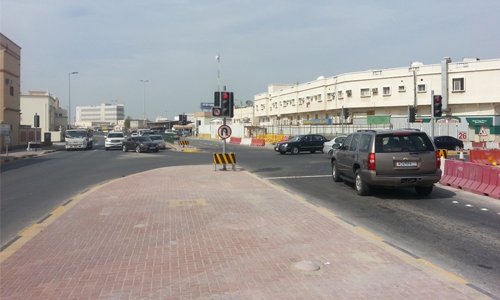‘SCOOT’ eases traffic snarls, says official
Manama : The newly developed version of the Traffic Signals Control System (SCOOT) has helped reducing traffic congestions in the Kingdom, according to Roads Planning and Design Director at the Ministry of Works, Municipalities and Urban Planning Kadhim Abdul Latif.
“Statistics reveal that the system has reduced waiting time by 20pc along King Faisal Highways, the Government Avenue, Fordah Avenue and Salmaniya Interchange,” Abdul Latif added.
‘SCOOT’ works by coordinating traffic signals close to each other to provide green signal to traffic with the highest concentration and thereby reduce waiting time or frequent stops between traffic signals.
Abdul Latif explained that the SCOOT System is also helpful to traffic engineers, as it can be used to detect the number of vehicles passing through pre-determined locations.
“The system also conducts a complete survey on all traffic signals to ensure they are operating normally. If a fault is detected, the system reports that. Besides, the
system gives right of the
way and priority to special vehicles like ambulances and civil defense vehicles when needed,” he added.
According to Abdul Latif, the Ministry implemented phase 1 of the project by linking 22 traffic signals, including 14 signals in North Manama and the Diplomatic Area and 8 others in Central Manama and Muharraq.
“Recently a number of traffic-signal controlled interchanges along King Faisal Highway in Manama, the Airport Highway in Muharraq and Sh. Salman Highway in Salmaniya have been linked to the SCOOT central control system,” he added.
The Ministry has also completed Phase 2 of the project, which includes connecting 10 new traffic signals along the Palace Avenue and Al Fateh Highway and five traffic signals along the Airport Highway.
Roads Planning and Design Director at the Ministry of Works, Municipalities and Urban Planning Kadhim Abdul Latif.
Related Posts


